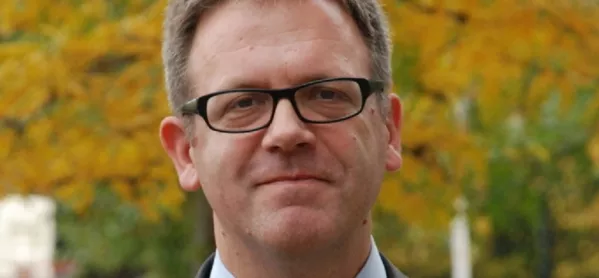My overwhelming response to the Queen’s Speech is frustration at the missed opportunity. You mean that’s it? There is not one single idea announced by Her Majesty that tackles the underlying challenges that schools face; not one statement that signals support for teachers and school leaders tasked with solving real educational problems on a daily basis as budgets continue to fall. It’s not beyond the realms of possibility that I could have been pleasantly surprised or even impressed by a prime minister and secretary of state determined to engage educators in a process of fundamental system improvement, focusing on creating the conditions for us all to thrive, joining the crusade for better standards and greater ambition for the young people who currently miss out. The chance was there for the taking.
Instead we’ve got just one idea - academisation - and the appallingly shallow and misguided gun-to-head tough talk that goes with it. Aside from the highly subjective basis for deciding that a school is “coasting”, the idea that academisation solves fundamental problems is massively flawed; the evidence simply isn’t there to support it. What we need are school leaders with the imagination, evidence-informed know-how, drive and energy needed to take tough schools on. The academisation drive just forces more and more schools into organisational structures that inhibit leadership recruitment and development. We need more leaders and better leaders - not just different leaders on a merry-go-round. Where are they all going to come from?
The tough talk around “powers to intervene” is a massive mistake. It fuels what is already a strong “cover your back” culture in schools. Too many school leaders are already driven towards making things look good at the expense of actually making them good; the compliance culture engendered by fear of Ofsted is still far too strong. Too many schools are infected with atrocious accountability-driven measures around lesson observations, book scrutiny, data targets, performance pay and so on. These things turn teachers away from the profession; they damage trust, de-professionalise and demoralise the people we are relying on to be the next generation of leaders.
I wonder if it is too cynical to believe that even the secretary of state doesn’t really think that the threat of academisation solves problems; it just does the political job of sounding tough. It is “doing something” writ large, perhaps buying a bit of time to come up with some ideas. If we roll forward five or 10 years, all the academies and free schools will be indistinguishable from their maintained counterparts. The same financial constraints and recruitment challenges will apply. The good schools are likely to be those that are well-led and managed with the most motivated staff; the places where the pedagogy is most effective and aspirations are highest. There is absolutely no reason to believe that the school’s designation will have a significant bearing on these factors.
It’s a very bad start to what could be an attritional five years. It’s a great pity.


